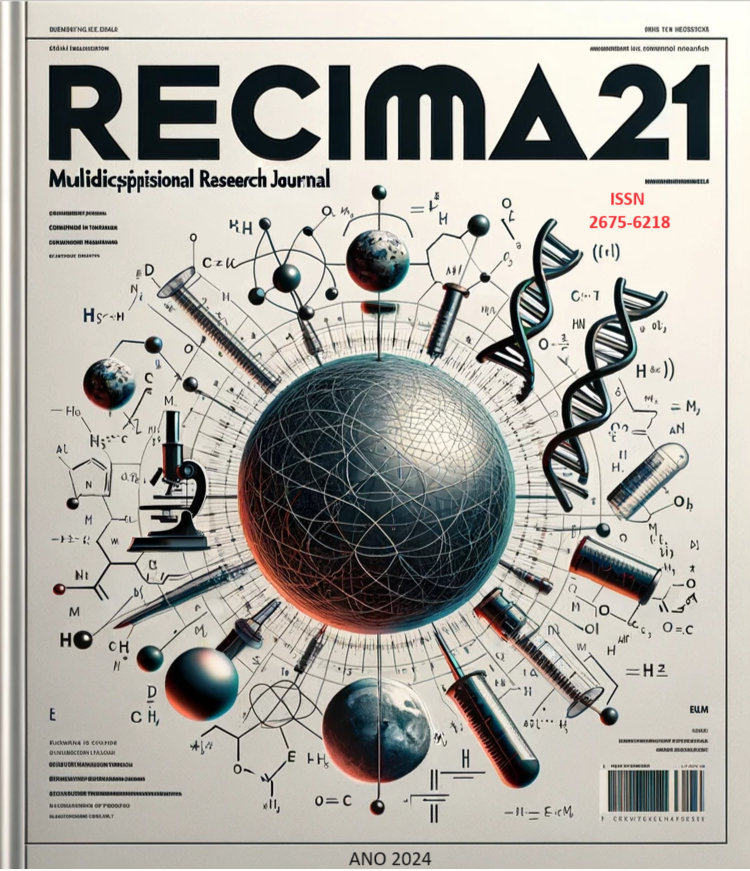IMPLEMENTATION OF THE MARIA DA PENHA PATROL IN THE 12TH BATTALION OF THE PARANÁ MILITARY POLICE: ANALYSIS OF RESULTS AFTER ONE YEAR.
DOI:
https://doi.org/10.47820/recima21.v5i10.5781Keywords:
State. Military Police of Paraná. 12th Military Police Battalion. Maria da Penha Patrol. Domestic Biolence. Community Police.Abstract
This article aims to analyze the results obtained from the work of Patrulha Maria da Penha within the scope of the 12th Military Police Battalion of the State of Paraná, as a specialized team with exclusive dedication to dealing with cases of domestic violence, after a year of implementation within the scope of the Operational Unit, which has been acting with an eminently preventive bias, aiming to reduce the occurrence of new cases of family violence, but also contemplating repressive actions, with the aim of arresting criminals in the act and seeking to offer immediate support victims, in order to prevent the repetition of illicit acts. However, in order to broadly understand the current employment scenario of this specialized team and its importance for PMPR and for society in Paraná, we first present an overview of the Maria da Penha Law itself (since its creation, historical advances), to, secondly, demonstrate the path that the Corporation has taken in recent years, from the implementation of the Community Police philosophy, adopted decades ago by the PMPR, to then arriving at the creation of the Maria da Penha Patrols, which fully follow this same philosophy.
Downloads
References
BRASIL. Constituição da República Federativa do Brasil de 1988. Brasília, DF: Presidência da República, 1988. Disponível em: http://www.planalto.gov.br/ccivil_03/Constituicao/Constituiçao.htm. Acesso em: 10 set. 2024.
BRASIL. Lei nº 11.340, de 7 de agosto de 2006 (Lei Maria da Penha). Brasília, DF: Presidência da República, 2006. Disponível em: http://www.planalto.gov.br/ccivil_03/_ato2004-2006/2006/lei/l11340.htm. Acesso em: 10 set. 2024.
FERNANDES, Maria da Penha Maia. Sobrevivi: posso contar. 2. ed. Fortaleza: Armazém da Cultura, 2012. 221p.
LISBOA, Tereza; ZUCCO, Luciana. Os 15 anos da Lei Maria da Penha. Florianópolis-SC: Universidade Federal de Santa Catarina, 2022. DOI: https://doi.org/10.1590/1806-9584-2022v30n286982
NÚCLEO DE ESTUDOS DA VIOLÊNCIA DA UNIVERSIDADE DE SÃO PAULO - NEV/USP. Manual de Policiamento Comunitário. São Paulo: NEV/USP, 2009.
PARANÁ. Constituição do Estado do Paraná. Curitiba-PR: Assembleia Legislativa, 1989. Disponível em: https://www.legislacao.pr.gov.br/legislacao/exibirAto.do?action=iniciarProcesso&codAto=9779&codItemAto=98301. Acesso em: 10 set. 2024.
PARANÁ. Lei 19.788 - 20 de dezembro de 2018. Institui no âmbito do Estado do Paraná as Patrulhas Maria da Penha e dá outras providências. Paraná: Governo do Estado, 2018. Disponível em: https://www.legislacao.pr.gov.br/legislacao/pesquisarAto.do?ation=exbir&cdAto=213662&idice=1&ttalRegistros=46&dt=5.10.2021.8.19.48.508. Acesso em: 10 set. 2024.
Downloads
Published
How to Cite
License
Copyright (c) 2024 RECIMA21 - Revista Científica Multidisciplinar - ISSN 2675-6218

This work is licensed under a Creative Commons Attribution 4.0 International License.
Os direitos autorais dos artigos/resenhas/TCCs publicados pertecem à revista RECIMA21, e seguem o padrão Creative Commons (CC BY 4.0), permitindo a cópia ou reprodução, desde que cite a fonte e respeite os direitos dos autores e contenham menção aos mesmos nos créditos. Toda e qualquer obra publicada na revista, seu conteúdo é de responsabilidade dos autores, cabendo a RECIMA21 apenas ser o veículo de divulgação, seguindo os padrões nacionais e internacionais de publicação.













